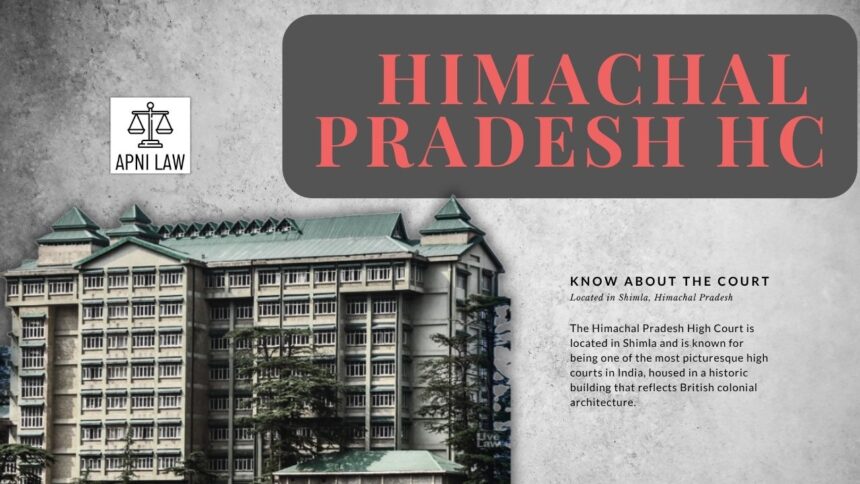Introduction
The Himachal Pradesh High Court, in Naveen Kumar v. State of Himachal Pradesh, denied bail to an accused under the Protection of Children from Sexual Offences (POCSO) Act. The Court clarified that a victim’s Aadhaar card showing 18 years cannot override the statutory presumption of minority. This is when school records establish she was below 18 at the time of the offence. The ruling strengthens safeguards under POCSO.
Main Story
The case involved a bail plea by the accused under sections of the Indian Penal Code and the POCSO Act. The allegation was that he sexually exploited a girl who claimed to be 18 years old on the basis of her Aadhaar card. However, school records revealed her actual date of birth, proving that she was a minor when the offence took place.
The defense argued that the Aadhaar card was a valid age-proof document under the Aadhaar (Targeted Delivery of Financial and Other Subsidies, Benefits and Services) Act, 2016. They contended that since the girl herself projected her age as 18 years, the accused should not be penalized under provisions meant to protect minors.
The Court rejected this contention. They emphasized that Aadhaar is primarily an identity document, not a conclusive proof of date of birth. It observed that for determination of age in criminal cases, school records and birth certificates have greater evidentiary value. This is upheld by several precedents.
Justice Vivek Singh Thakur, delivering the judgment, held that the victim’s school certificate clearly established her minority at the time of the alleged incident. The Court also noted that consent is immaterial in cases involving minors under POCSO, and even if the girl represented herself as a major, the statutory protection of children cannot be diluted.
Consequently, the Court denied bail to the accused, reaffirming that age misrepresentation by the victim cannot become a defense under POCSO.
What Is The Provision Under POCSO Act
The POCSO Act, 2012, was enacted to provide stringent protection to children against sexual assault and exploitation. Under Section 2(d), a “child” is defined as any person below 18 years of age. Section 29 presumes the accused guilty unless proven otherwise.
Indian courts have consistently prioritized school records and municipal birth certificates over Aadhaar as reliable age-proof. In Jarnail Singh v. State of Haryana (2013), the Supreme Court held that school records are the primary evidence for determining the age of a victim in criminal trials. Similarly, in multiple POCSO cases, courts have ruled that Aadhaar details cannot displace official educational or municipal records.
This ruling also addresses a rising legal issue. Whether misrepresentation by minors about their age can shield accused persons from liability. Courts have repeatedly clarified that the law’s intent is to protect children. This is irrespective of their statements or false claims of majority. The Himachal Pradesh High Court’s ruling aligns with this principle by refusing to accept the Aadhaar card as overriding proof of age.
For any specific query call at +91 – 8569843472
Implication
The decision in Naveen Kumar v. State of Himachal Pradesh reinforces the strict application of POCSO safeguards. It sends a clear message that age determination in such cases cannot rely solely on Aadhaar. Lawyers, citizens, and law enforcement agencies must treat school and official records as the primary evidence of age. The judgment further ensures that accused persons cannot escape liability by citing misrepresentation by minors. Thereby strengthening child protection laws in India.








